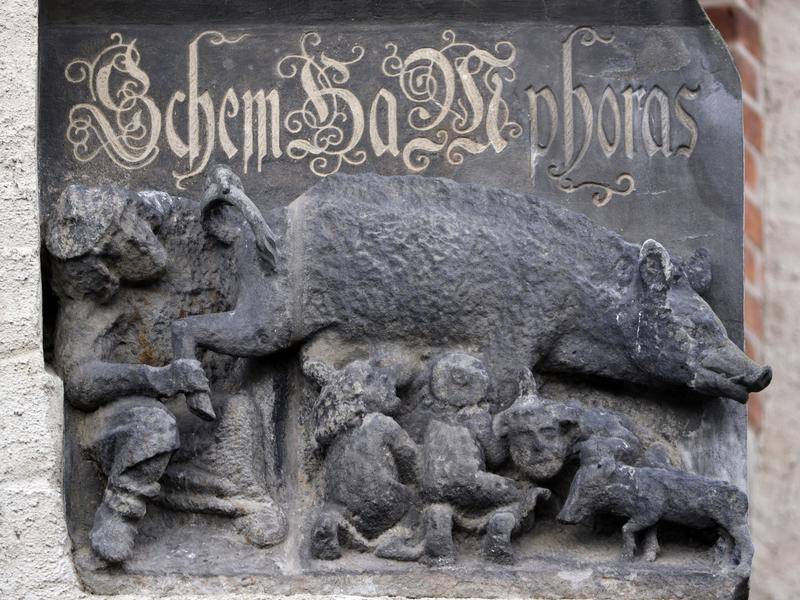A German court has ruled a 700-year-old anti-Semitic sculpture could stay on the exterior of a church in the city of Wittenberg, dismissing a claim by a member of the local Jewish community that it was defamatory and should be removed.
The court case comes amid a national debate in Germany about rising anti-Jewish hate, after an anti-Semitic gunman killed two people near a synagogue in the eastern city of Halle last year.
The “Judensau,” or “Jew pig”, on a wall of Wittenberg’s St Mary’s church is a reminder of widespread anti-Semitism in the Middle Ages. It depicts a rabbi lifting the tail of a sow and peeping at its behind, while Jewish children suckle on the animal.
Pigs are considered unclean in Judaism, which forbids both their rearing as well as pork consumption.
The Higher Regional Court in Naumburg ruled that displaying the “Judensau”, which is four metres from the ground did not constitute an offence.
“The sculpture in its current context has neither an insulting character, nor does it violate the plaintiff’s personal rights,” the judgement said.
Sigmount A. Koenigsberg of Berlin’s Jewish community said: “We don’t want this ‘Judensau’ to disappear. It should be on public display but not on the side of a church. It belongs in a museum alongside clear historical context about anti-Semitism in the Middle Ages.”
Read the article by Joseph Nasr in The Canberra Times.

